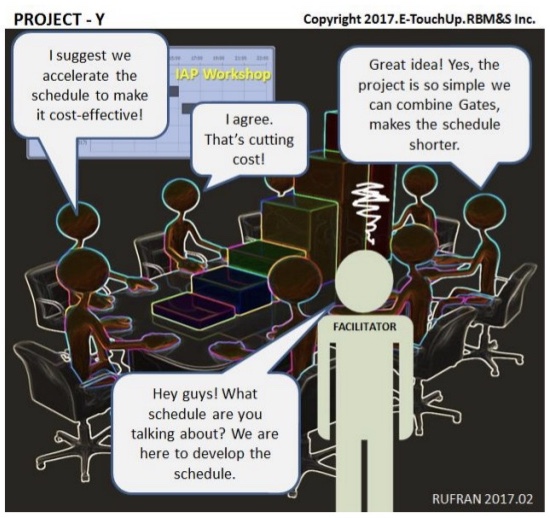Gate 1 Schedule Development – Project managers must exercise caution during this stage, as the absence of useful data can bring frustration and frustration can introduce unsound assumptions and constraints into the plan and schedule. Faulty information can come from any direction, driven by a mandate to deliver something right away.
Some planners and schedulers in one professional gathering talked about the temptation of putting the cart ahead of the horse when their managers pressure them to deliver. They had all tried to pick the fruit before it was ripe, and that is not right. Doing so is a form of intellectual deception. Judge for yourself by reflecting on two of the things they did to deliver their schedule.

First, the use of high-level EPC schedule fragnet. They’ve employed the same fragnet numerous times in various projects, passing it as a preliminary Gate 1 schedule. They simply changed the name of the project and voila, an apparent schedule was already available. Adjustment of the duration to fit a perceived or mandated goal post followed.
After telling their story, they highfived, laughing hysterically but another planning professional said, “Yes, it is easy, dirty, and of course, without rationale, useless!” The group got mad and started to argue with the person.
This attitude to Stage 1 schedule development might be the result of the notion that it is not actually the schedule the project needs, but rather a rough, high-level bar chart and a few goal posts (milestones) presented as a report on one of the preliminary planning documents. The schedule at this stage has a very wide estimating accuracy tolerance of say, +100% and -50%, or +100% and -60%.
Second, more than a few times, some managers look at a checklist and see a schedule. The problem: Due to eagerness, and perhaps ignorance of the process, will talk about accelerating the schedule that has not been created! They want to fix something that just isn’t there yet! Isn’t that amazing?
